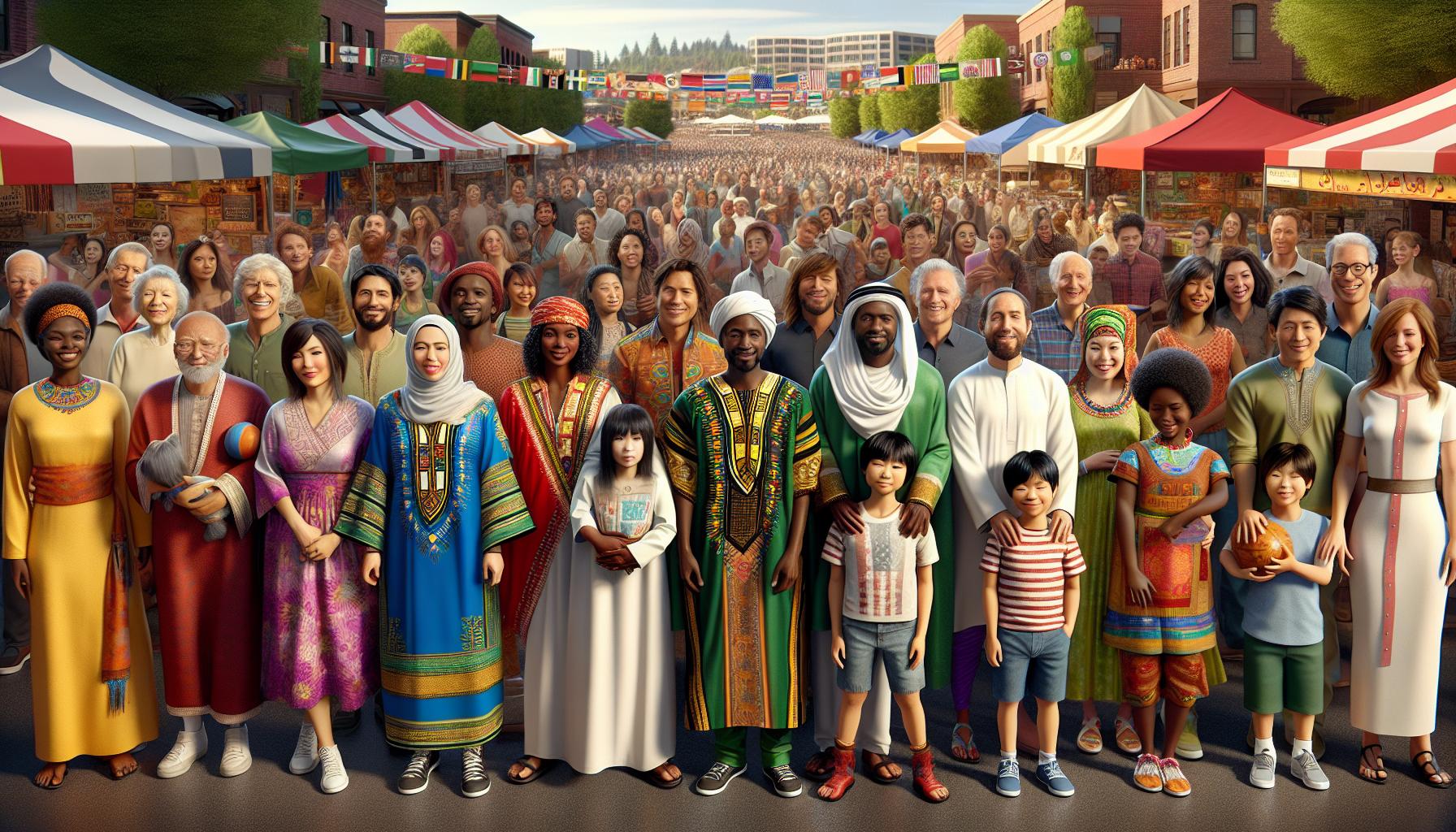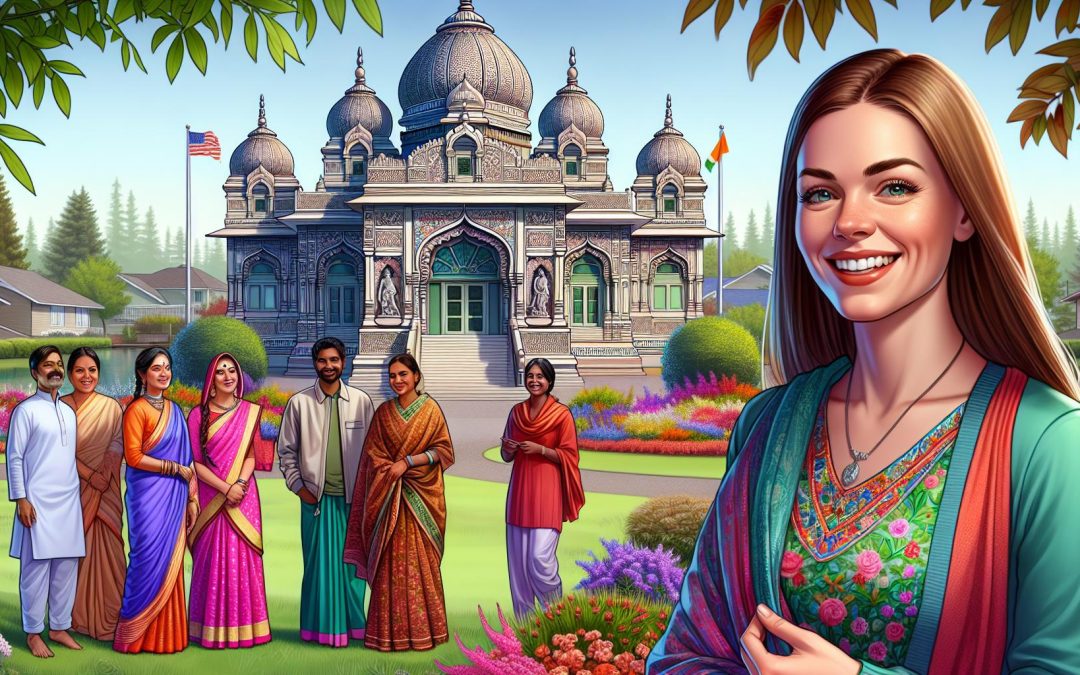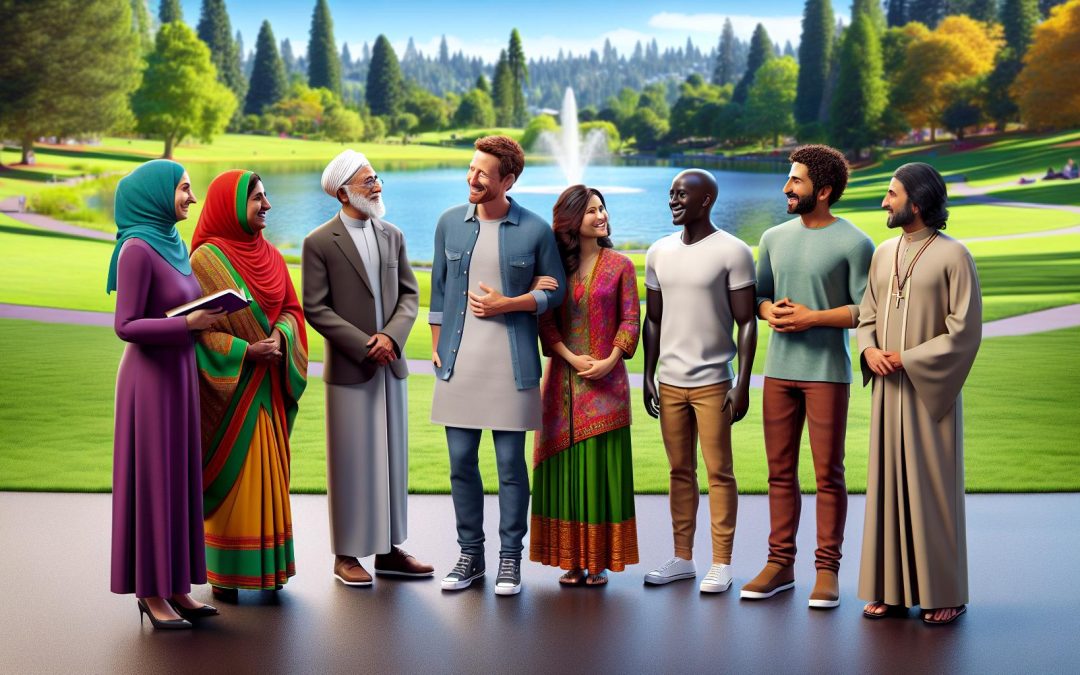When I think of Redmond, Washington, the first things that come to mind are its lush landscapes and tech-driven economy. But beneath the surface, there’s a rich tapestry woven with threads of faith and spirituality that have shaped the town’s identity. Religion, often seen as a personal journey, has played a significant role in Redmond’s communal life, influencing everything from local festivals to community services.
Exploring Redmond’s history, I find that the diverse religious practices have not only provided spiritual guidance but also fostered a sense of belonging and unity among its residents. From the early settlers who built the first churches to the vibrant multicultural communities today, religion has been a cornerstone in shaping Redmond’s cultural landscape. It’s fascinating how these faith traditions continue to impact the way people connect, celebrate, and support one another in this ever-evolving city.
Historical Overview of Religion in Redmond
Religion in Redmond has significantly shaped the city’s identity. Diverse faiths have contributed to a shared community spirit.
Early Religious Influences
In the mid-19th century, settlers brought Christian beliefs to Redmond. Small congregations formed the first churches, often doubling as community gathering places. By the late 1800s, denominations like Methodists and Baptists were prominent. These early religious groups fostered a sense of community, hosting events that united people beyond their spiritual gatherings. As Redmond matured, other faiths began to emerge. Jewish settlers, for instance, introduced cultural practices that added to the town’s diversity. Religion played a foundational role in fostering not only spiritual but also social bonds within Redmond.
Growth of Religious Institutions
As Redmond expanded, so did its religious landscape. The 20th century saw an increase in both the number and variety of religious institutions. Established churches became central hubs, offering services, support, and outreach programs. Meanwhile, new faith-based organizations emerged, reflecting the city’s growing multicultural population. Temples and mosques began appearing, testifying to the area’s rich diversity. These institutions have provided venues for spiritual practices and built bridges among various cultural communities. Major religious festivals, seen throughout the city, highlight the vibrant tapestry of traditions that continue to influence Redmond’s cultural and social dynamics.
Religious Diversity in Redmond
Religious diversity shapes the cultural fabric of Redmond, offering residents a broad spectrum of spiritual expressions. The city hosts a mixture of longstanding faith traditions and emerging communities, enriching its communal life.
Major Faith Traditions
Christianity, Buddhism, Islam, and Judaism play key roles in Redmond’s religious landscape. Churches, temples, mosques, and synagogues provide spaces for worship and reflection. Christian denominations, including Methodists and Baptists, maintain longstanding congregations with weekly services and social outreach programs. Buddhism finds expression through various temples that offer mindfulness and meditation practices, drawing both practitioners and curious visitors.
Islamic centers like mosques welcome diverse attendees for prayer and community engagement activities. Synagogues in Redmond engage Jewish families through traditional services and cultural programs, especially during significant celebrations like Hanukkah and Passover. These well-established faith traditions host cultural events that foster interfaith understanding and collaboration.
Small and Emerging Communities
Redmond’s vibrant scene includes smaller and emerging religious groups contributing unique perspectives. Hindu congregations gather at local temples, partaking in festivals like Diwali, which illuminate the city’s diversity. Sikh communities, though smaller in numbers, provide rich cultural contributions, with gurdwaras open to all for worship and community meals.
New spiritual movements, like Bahá’í, have found a place in Redmond, advocating unity and equality. These groups often collaborate on interfaith initiatives that promote dialogue and shared values. Such emerging communities not only nurture cultural richness but also enhance the city’s appeal as a welcoming place for diverse spiritual expressions.
Cultural Impact of Religion
Religion deeply influences Redmond’s cultural vibrancy, evident in community celebrations and artistic expressions.
Religious Festivals and Community Events
In Redmond, religious festivals not only celebrate traditions but also strengthen community bonds. Annual events like Christmas caroling, Diwali, and Eid gatherings bring together residents of varying backgrounds. For example, Christmas markets feature local artisans and traditional treats, while Diwali lighting ceremonies attract large crowds to witness stunning light displays. Mosques and Islamic centers organize Eid festivals with prayers and community meals, inviting people to participate and learn. Interfaith events further promote cohesiveness by encouraging dialogue and shared celebrations of diverse practices. Community services organized by churches and temples, such as food drives and volunteer opportunities, underscore the unifying role of religion in local life. These festivals and events highlight Redmond’s commitment to embracing multiculturalism through religious expression.
Influence on Local Art and Architecture
Religious themes shape Redmond’s art and architecture, reflecting the diverse spiritual heritage of the city. Churches, temples, and mosques add unique architectural styles to the landscape, reflecting their cultural origins. For instance, local Buddhist temples showcase traditional East Asian design elements, while Islamic centers feature intricate Arabic motifs. Public art installations often draw inspiration from spiritual themes, adding a layer of cultural depth to the community. Examples include sculptures in public parks that exhibit themes of peace and unity, encouraging contemplation. Community art projects frequently incorporate religious symbols and stories, enhancing appreciation for various traditions. This influence in art and architecture reinforces Redmond’s identity as a community that celebrates and integrates spiritual diversity into its visual and cultural environment.
Religion and Education
Religion deeply influences education in Redmond, shaping both formal institutions and community learning. It’s woven into various educational programs and initiatives, reflecting the cultural and spiritual diversity of the city.
Faith-Based Schools and Programs
Faith-based schools hold a significant place in Redmond’s educational landscape. These institutions, often affiliated with churches, temples, or other religious centers, combine academic curricula with spiritual teachings. For example, private Christian academies provide students with both conventional education and faith-based classes. Jewish and Islamic schools offer similar models, with programs emphasizing cultural practices, language, and religious teachings.
These schools play a crucial role in community cohesion by fostering shared values and promoting ethical learning environments. Beyond formal education, faith organizations conduct after-school programs, summer camps, and youth activities. Temples may offer yoga and meditation, while churches might host music and arts workshops. These programs allow children and adults to explore spirituality and culture outside the traditional classroom setting, enhancing personal growth and community involvement.
Interfaith Initiatives in Education
Interfaith initiatives in Redmond focus on promoting understanding and collaboration among different religious groups. Schools and community centers organize events like interfaith dialogues and cultural exchange programs. These activities offer opportunities for students and residents to learn about diverse beliefs, fostering respect and empathy.
Educational workshops focus on shared values, such as kindness and compassion, rather than theological differences. For instance, youth leadership programs often include service projects that bring together participants from multiple faith backgrounds to address community needs. Additionally, faith-based organizations frequently partner with public schools to host cultural festivals and educational fairs. These events celebrate Redmond’s religious diversity and encourage a spirit of unity and cooperation among its citizens.
Modern Challenges and Adaptations
Redmond’s spiritual landscape continues to evolve as it navigates modern challenges and cultural shifts.
Changing Demographics and Beliefs
Redmond’s population has grown and diversified, altering the city’s religious dynamics. Recent census data shows increasing numbers of residents from various ethnic backgrounds, contributing to a richer tapestry of beliefs and practices. This influx introduces unfamiliar faith traditions and questions about integrating new cultural expressions into public life. Long-established religious communities now share their influence with newer groups, such as Hindu and Sikh communities, reflecting a broader spectrum of spiritual expressions. Younger generations often prefer spiritual exploration over traditional doctrines, blending practices across beliefs and creating fresh interpretations of faith. This evolution challenges religious institutions to adapt, often introducing inclusive services or interfaith dialogues to foster understanding and unity.
Role of Religion in Social Issues
Religion in Redmond influences social dynamics alongside current issues. Faith groups actively engage in addressing social concerns, from homelessness to environmental sustainability. Several churches host food banks and shelters, providing immediate assistance to individuals in need. Faith-based initiatives often collaborate with local governments and nonprofits, forming coalitions that amplify their impact on social justice and community welfare. Interfaith coalitions advocate for equitable treatment of all residents, championing inclusivity and diversity as core societal values. In navigating doctrines that can vary significantly among different faiths, leaders strive to find common ground, promoting respect and cooperation as crucial elements in tackling these challenges together.
Conclusion
Reflecting on Redmond’s rich tapestry of spiritual traditions, it’s clear how deeply intertwined religion is with the city’s identity. The diverse faith practices not only enrich the cultural landscape but also foster a strong sense of community and belonging. As Redmond continues to grow and evolve, the adaptability and inclusiveness of its religious institutions play a vital role in maintaining harmony and understanding among its residents.
In embracing both historical roots and modern adaptations, Redmond stands as a beacon of multiculturalism and spiritual diversity. It’s a place where different beliefs coexist and collaborate, creating a vibrant community that celebrates its varied heritage. As I see it, this ongoing journey of faith and unity is what truly defines Redmond, making it a unique and welcoming home for all.





0 Comments